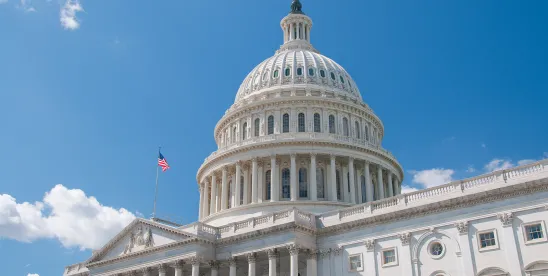Business
Federal Shutdown Enters Day 31, Legal Challenges Intensify

The federal government shutdown in the United States has reached Day 31, with significant implications for millions of citizens. If the shutdown continues through November 5, 2025, it will surpass the previous record of thirty-five days set between 2018 and 2019. This week, Republican leaders in the U.S. Senate abandoned plans to vote on several critical funding bills, including those aimed at providing pay for military personnel and ensuring support for the Supplemental Nutrition Assistance Program (SNAP).
Legal challenges surrounding SNAP have intensified, particularly as the U.S. Department of Agriculture (USDA) announced that it would not fund SNAP benefits starting November 1, 2025. In response, twenty-five states along with the District of Columbia have launched a legal challenge against this decision, asserting that the USDA possesses sufficient funds to cover at least a portion of the November benefits. The states argue that halting SNAP benefits is “both contrary to law and arbitrary and capricious under the Administrative Procedure Act.”
On October 31, 2025, Judge Indira Talwani of the U.S. District Court for the District of Massachusetts ruled that the USDA’s decision to suspend SNAP benefits was “unlawful.” She mandated that the administration provide an explanation by November 3, 2025, regarding how it plans to fund the aid for November. Additionally, Judge John J. McConnell, Jr., presiding over a similar case in Rhode Island, ordered the Trump administration to utilize emergency reserves to ensure timely distribution of payments for November.
The impact of the shutdown extends beyond food assistance. In a statement issued on October 27, 2025, Everett Kelley, National President of the American Federation of Government Employees (AFGE), urged Congress to “reopen the government immediately under a clean continuing resolution.” The AFGE represents approximately 820,000 federal and D.C. government workers, highlighting the growing pressure on lawmakers to negotiate a resolution.
Concerns are also rising regarding health care costs as the open enrollment period for Affordable Care Act (ACA) coverage begins on November 1, 2025. Without extended subsidies—a key item for Democrats in the funding package—millions of Americans may face significant increases in insurance premiums.
Military personnel, who are scheduled to receive their second paycheck for October this weekend, are also facing uncertainty. Statements from the administration indicate that funding may not be sufficient to cover the next pay period on November 15, 2025.
In a related development, the U.S. Citizenship and Immigration Services (USCIS) announced on October 30, 2025, that it will end the automatic extension of employment authorization documents (EADs) for certain foreign nationals. Previously, timely filed renewal applications would extend work authorization by 540 days, but the new rule could leave many without work authorization during processing delays.
Amid these developments, the U.S. Equal Employment Opportunity Commission (EEOC) has regained a functioning quorum with the swearing-in of Brittany Panuccio, who was confirmed by the Senate on October 7, 2025. Her addition alongside Acting Chair Andrea Lucas and Commissioner Kalpana Kotagal could influence the commission’s agenda moving forward.
Additionally, the Trump administration is seeking to expedite deregulation efforts. Acting Administrator of the Office of Information and Regulatory Affairs (OIRA) Jeffrey Bossert Clark, Sr. issued a memorandum encouraging agencies to streamline the review process for rescinding regulations, establishing maximum review periods of 28 days for standard rules and 14 days for those deemed unlawful.
As the shutdown continues, the potential for significant legislative and legal developments remains high. Lawmakers and citizens alike are watching closely as the deadline approaches for a resolution to this ongoing crisis.
-

 Science2 weeks ago
Science2 weeks agoInventor Achieves Breakthrough with 2 Billion FPS Laser Video
-

 Top Stories3 weeks ago
Top Stories3 weeks agoCharlie Sheen’s New Romance: ‘Glowing’ with Younger Partner
-

 Business3 weeks ago
Business3 weeks agoTyler Technologies Set to Reveal Q3 Earnings on October 22
-

 Entertainment3 weeks ago
Entertainment3 weeks agoDua Lipa Aces GCSE Spanish, Sparks Super Bowl Buzz with Fans
-

 Health3 weeks ago
Health3 weeks agoCommunity Unites for 7th Annual Into the Light Walk for Mental Health
-

 World3 weeks ago
World3 weeks agoR&B Icon D’Angelo Dies at 51, Leaving Lasting Legacy
-

 Health3 weeks ago
Health3 weeks agoCurium Group, PeptiDream, and PDRadiopharma Launch Key Cancer Trial
-

 Entertainment3 weeks ago
Entertainment3 weeks agoRed Sox’s Bregman to Become Free Agent; Tigers Commit to Skubal
-

 Entertainment3 weeks ago
Entertainment3 weeks agoMother Fights to Reunite with Children After Kidnapping in New Drama
-

 Health3 weeks ago
Health3 weeks agoNorth Carolina’s Biotech Boom: Billions in New Investments
-

 Science3 weeks ago
Science3 weeks agoNorth Carolina’s Biotech Boom: Billions Invested in Manufacturing
-

 Top Stories3 weeks ago
Top Stories3 weeks agoDisney+ Launches Chilling Classic ‘Something Wicked’ Just in Time for October









